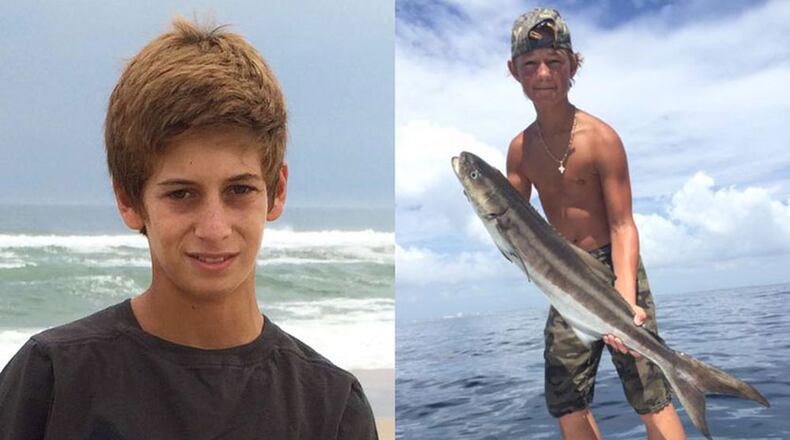- Man killed by escort was likely a serial killer, police say
- 3-women brawl in line at Disney caught on camera
- Man's selfie with rattlesnake lands him $153K hospital bill
- Boys hospitalized for severe sunburns after day care allegedly left them in hot sun
- Waitress fired, restaurant owner sorry after customers labeled 'black couple' on receipt
Update, 10:50 p.m. (ET): Coast Guard crews found nothing during a sweep of an area off Tybee Island, Ga., after receiving a tip about a floating "object or person," Petty Officer Anthony Soto said.
A tip came in around 8 p.m. about two floating objects or people off the coast of Georgia, and Coast Guard boat and helicopter crews investigated. They search the area, but found no signs of objects or people, Soto said.
The Coast Guard has issued a marine warning to urge boaters to be aware and on the look out for the reported object. There are plans to search the area again at first light, Soto said.
“There’s no real way to correlate the objects to the search for the missing teens,” Soto said.
Update, 9:40 p.m.(ET): Coast Guard crews are investigating an object spotted off the coast of Tybee Island, Ga.
A spokesman tonight could not confirm what the object is or whether it is connected in any way to the case of missing Tequesta teens Austin Stephanos and Perry Cohen.
Perry Cohen (left) and Austin Stephanos.
Crews were pulling the object in to investigate it further, Coast Guard officials reported around 9:30 p.m.
Check back for updates.
PREVIOUS REPORT:
Sea survival expert Mario Vittone, a 22-year Coast Guard rescue swimmer who grew up in Winter Haven, said young teenagers would be at their limit of how long they could survive at sea after four or five days, given certain circumstances.
Tequesta’s Austin Stephanos and Perry Cohen, both 14, have been lost at sea since about Friday afternoon.
Vittone, retired from the Coast Guard and now a vessel inspector and boating accident investigator, said despite the southern Atlantic’s 85-degree waters, that is below normal body temperature, and hypothermia would soon set in.
Vittone is a leading expert on immersion hypothermia. He said if the boys did not have fresh water, dehydration would be the most pressing concern.
“The ocean is the largest, most hostile environment known to man and you’re surrounded on all sides by things trying to kill you,” Vittone said by phone from California.
Vittone said there are three things that determine how long someone can survive while waiting for rescue:
Did they stay on the boat?
Forty percent of people who go overboard are never found, Vittone said, quoting from the most recent Coast Guard statistics.
“When you fall off the boat, you’re in the most dangerous place you can be,” he said.
Were they wearing a life jacket?
The boys, he said, would have long ago been exhausted trying to tread water if they didn’t have a life preserver or something to hold on to.
“If they weren’t wearing a floatation device, they didn’t make it,” he said.
Did they have a way to signal for help?
The most important thing the boys should have had — and didn’t — was a homing beacon, which is sometimes built into the life jacket. And on the life jacket, they should have strobe lights and a flash light to be seen at night.
Surviving this long on the open water would be difficult for two adults. For two teens, he said, “we’re talking about a miracle.”
“I’d be glad to let my 14-year-old go offshore in a boat,” he said. “But I’m going to be with him.”
About the Author
The Latest
Featured


